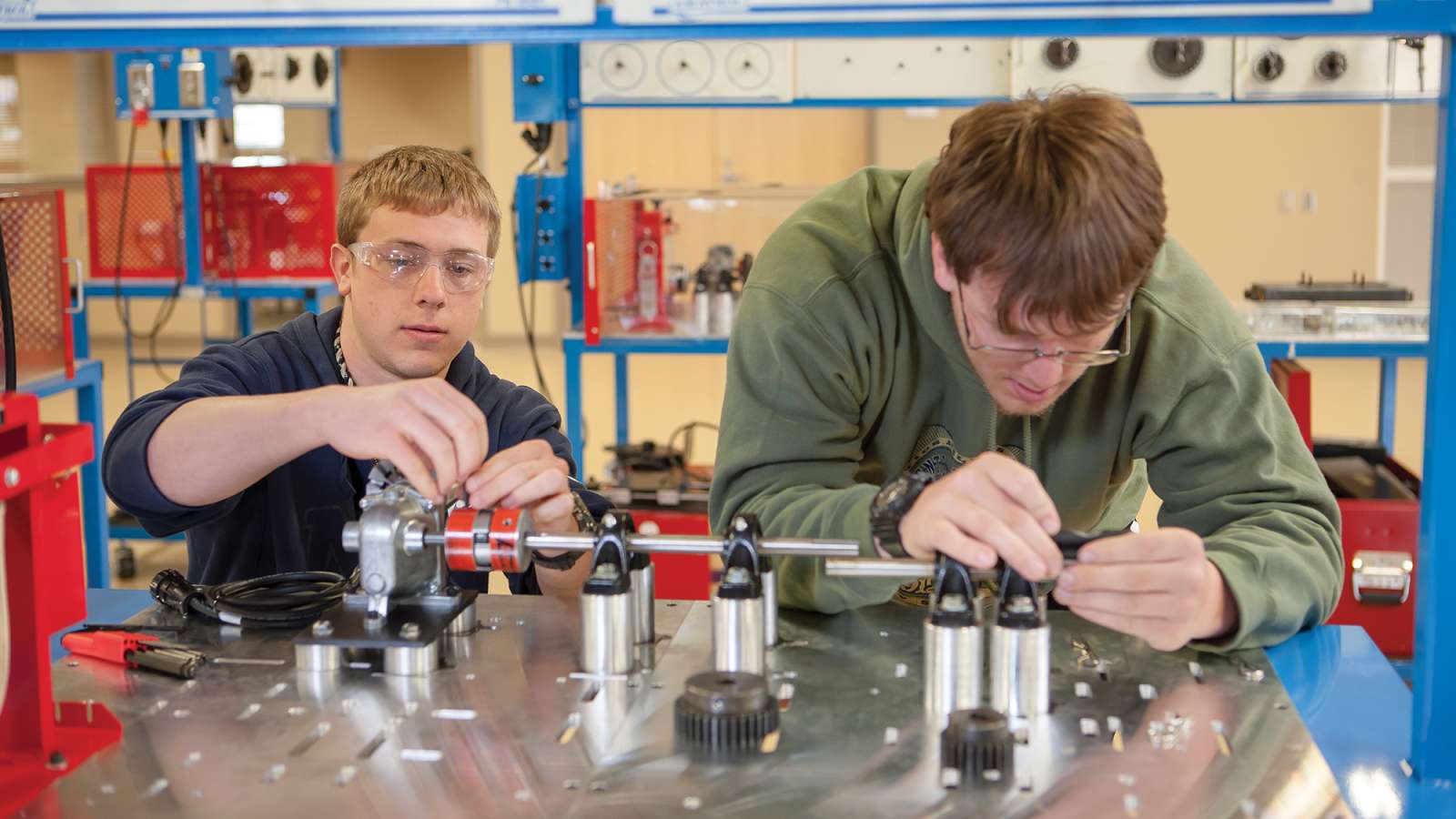Electrical & Instrumentation Technicians install, service, troubleshoot and perform preventive and predictive maintenance functions on equipment.
This includes plant lighting equipment and receptacle circuits, motors, starters, motor control centers, programmable controllers, control panels, electrical control systems and transformers. They may also service high voltage electrical systems, and ensure that work is in accordance with relevant codes. They repair, test, adjust, calibrate or install electronic equipment, such as industrial controls, transmitters and antennas.
Terms of Apprenticeship
- 5 year program
- 9,392 hours of on-the-job training
- 1,008 hours of paid related classroom instruction
- Apprentice must complete Red Cross First Aid, CPR and Transition-To-Trainer Courses
2024–25 Curriculum
Get Started
To apply for an Apprenticeship, you must be employed by a business or organization that participates in an apprenticeship program and has a completed Department of Workforce Development (DWD) contract. Each employer sets its own requirements for entry into the program. To determine your eligibility and explore available opportunities, contact your employer’s human resources department.
Questions?
If you have questions about this apprenticeship or the application process, please contact our Recruitment team.
